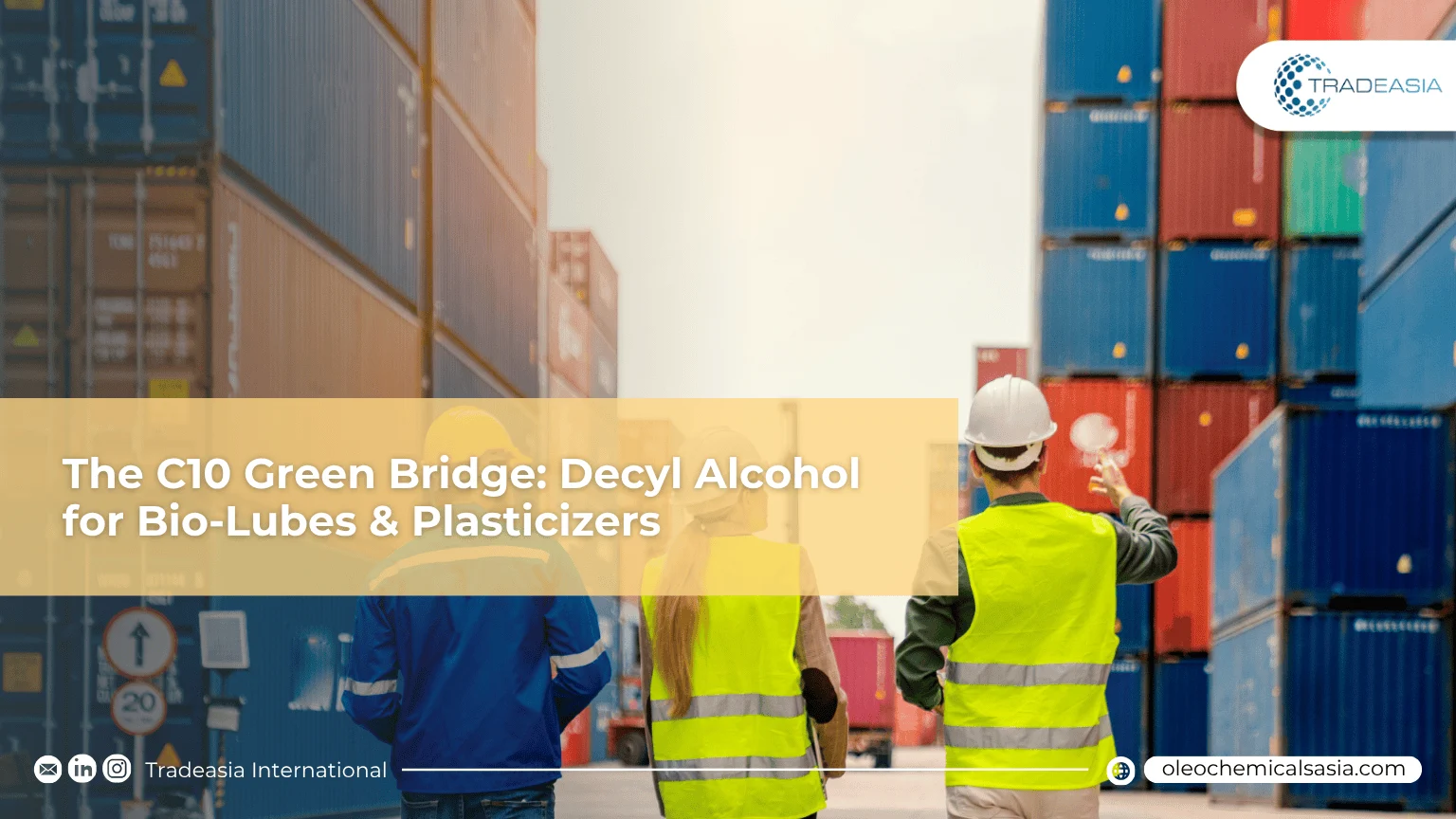The C10 Green Bridge: Decyl Alcohol R&D for Sustainable Plasticizers and Bio-Lubricants

Table of Content
- Pushing Performance Boundaries in Industrial Esters
- Fueling the Bio-Based Market Surge with Strategic R&D
The industrial chemical landscape is currently defined by the transition from fossil fuels to sustainable, bio-based feedstocks. At the forefront of this shift is Decyl Alcohol (1-Decanol), a versatile C10 fatty alcohol derived from palm oil. The market for 1-Decanol is exhibiting robust expansion, driven by regulatory pressure and corporate sustainability commitments, contributing to the segment's overall projected CAGR of 9.8% over the next five years. This growth trajectory highlights the urgent need for R&D to perfect Decyl Alcohol’s application as a premier 'green' chemical intermediate.
In this dynamic environment, a partner that guarantees consistency from origin to application is invaluable. This is the essence of effective global palm and oleochemical trade: an unbroken commitment to quality and traceability. "A chain is only as strong as its link to the source." This commitment underpins the reliability required to sustain global manufacturing, ensuring that high-purity Decyl Alcohol arrives exactly when and where it is needed to power industrial transformation projects worldwide.
Pushing Performance Boundaries in Industrial Esters
The core of current R&D centers on transforming Decyl Alcohol into high-performance industrial esters, specifically targeting the plasticizer and lubricant markets. Historically, Decyl Alcohol has been integral to plasticizer production, but modern R&D is focused on creating non-phthalate and highly biodegradable Decyl Alcohol esters. This innovation is critical to comply with escalating environmental mandates, notably the EU’s target to recycle 65% of plastics by 2035. By developing these advanced C10 derivatives, producers are providing manufacturers with a solution that meets both performance metrics and ecological goals. Concurrently, R&D in Bio-Lubricants utilizes C10 through advanced esterification processes to engineer formulations with superior thermal stability and environmental profiles, often achieving biodegradation rates exceeding 60% within 28 days, a significant advantage over conventional petroleum-based oils.
Fueling the Bio-Based Market Surge with Strategic R&D
This strategic R&D is a direct response to the market’s appetite for sustainable solutions. The broader global bio-based oleochemicals market, where C10 plays a key role, is projected to surge from its current base to reach $13.290 million by 2032, reflecting an impressive 8.8% CAGR. Beyond plasticizers, the versatility of Decyl Alcohol shines through its use in creating sophisticated surfactants like Decyl Glucoside, a favorite in green formulations. R&D is the crucial lever for converting palm derivatives into high-value components such as biodegradable materials and bio-lubricants, securing a profitable and resilient future for the palm-based chemical industry by delivering verified, sustainable materials to global manufacturing partners.
Sources:
-
Frontiers - Biosynthesis of Fatty Alcohols in Engineered Microbial Cell Factories: Advances and Limitations (https://www.frontiersin.org/journals/bioengineering-and-biotechnology/articles/10.3389/fbioe.2020.610936/full)
-
Oleochemicals Asia - Shaping the Future: How R&D Transforms Palm Oil into High-Value Oleochemicals (https://www.oleochemicalsasia.com/rnd-transform-palm-oil)
-
Environmental Report - EU Waste Framework Directive and Plastic Recycling Targets.

Leave a Comment